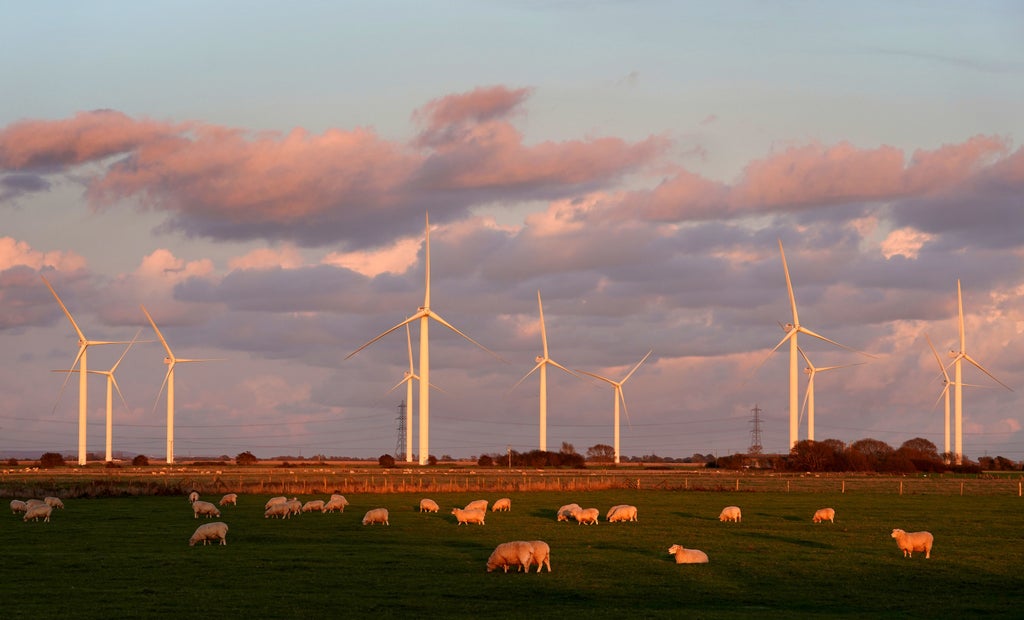
Boris Johnson is poised to bow to pressure from Conservative MPs to block new onshore wind farms, rejecting calls to kickstart the industry in response to the energy crisis.
A long-delayed “energy independence plan” is set to maintain planning rules that allow just a single local objection to kill off proposed schemes in England. These rules have been blamed for a falling off in investment in onshore wind.
No 10 has considered scrapping the effective veto, but a government spokesperson said: “Any decisions on onshore wind will always be subject to consent from local communities.”
The decision comes despite pressure from Kwasi Kwarteng, the business secretary, who wants to double the power generated by onshore wind turbines by 2030 in order to help wean the UK off Russian gas.
Grant Shapps, the transport secretary, laid bare the cabinet split when he branded wind turbines an “eyesore” that “sit on the hills” and create “problems of noise”.
Meanwhile a Tory backbencher has warned the prime minister of a party backlash that would scupper any attempt to dilute the planning restrictions that were imposed, under similar pressure, by David Cameron’s government.
James Gray told BBC Radio 4 that some 120 MPs are in a WhatsApp group opposing wind and solar farms, adding: “The government would not be able to get a change through without our support. We need to preserve our countryside, we need to preserve fields. And if I have to make a fuss about it, I’m going to. Watch out, Mr Government – here I come.”
The energy strategy will finally be published this week, but will focus on reviving nuclear power and expanding offshore wind, as well as on controversial new North Sea oil and gas licences.
The shadow business secretary criticised the government’s stance, arguing that onshore wind power is crucial to “secure supplies that are renewable and that meet our net-zero objectives”.
Labour’s Jonathan Reynolds said: “The government are really making a mistake if they believe that onshore wind, which is the cheapest form of new electricity generation, isn’t going to be part of the solution to this.”
But earlier, Mr Shapps said of the turbines: “They sit on the hills there and can create something of an eyesore for communities, as well as actual problems of noise. So I think, for reasons of environmental protection, the way to go with this is largely – not entirely – but largely [offshore].”
The transport secretary indicated that the prime minister backs his view, something he said would be apparent when the strategy is released, probably on Thursday.
“What you really want to do is develop in other ways – nuclear, we will have offshore wind. I don’t think you want a huge expansion of onshore wind,” he said.
Mr Johnson is pushing to get 25 per cent of the UK’s electricity from nuclear power, which will require up to six new power stations to be built at a cost that is alarming the chancellor, Rishi Sunak.
However, the National Infrastructure Commission has warned that nuclear plants are “incredibly difficult to deliver on short timescales” and that any begun now may not come online until the mid-2040s.







